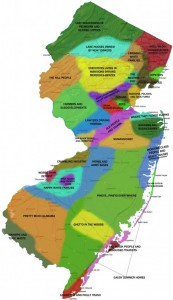 Last week the New Jersey State Legislature moved forward a bill that would allow Atlantic City casinos to offer sports betting if the Federal government ever lifts its ban on state regulated bookmaking. They’ve even gone so far as approving a bill paving the way for casinos to start applying for licenses start offering sports betting.
Last week the New Jersey State Legislature moved forward a bill that would allow Atlantic City casinos to offer sports betting if the Federal government ever lifts its ban on state regulated bookmaking. They’ve even gone so far as approving a bill paving the way for casinos to start applying for licenses start offering sports betting.
So everything looks rosy for anyone who wants to drop into the Trump Casino and lay a few hundred down on the Giants, right? Not so fast there, big spender. No matter what Garden State voters want, there won’t be legal sports betting in Atlantic City without Federal approval and that could take a very long time. (Though supporters of the bill are hoping to have everything in place by fall 2012.)
The Back Story
New Jersey’s move towards legalized sports betting is the opening shot in what promises to be a long, grinding battle that could take years to complete. The bill to accept license applications from casinos to open sports books should be looked at for exactly what it is, an opportunity for the New Jersey Attorney General to file a case challenging the Constitutionality of a Federal ban on sports betting.
Back in the 1981, when only a few states offered legal gambling of any kind, the state of New Jersey had a ten-year window to challenge the Federal ban on sports betting. They chose not to pursue this option and the window of opportunity ran out in 1991.
In 1992, Congress passed the Professional and Amateur Sports Protection Act, which forever outlawed State governments from entering into the bookmaking business. (Under the Act, states that regulated sports betting in any way were considered to be in the bookmaking business.)
States that already offered some form of sports betting were allowed to keep it in whatever form it existed in 1992. That’s why Nevada is the only place in the United States where traditional sport betting is legal.
This legislation was result of heavy lobbying from the NFL and NCAA. Both of these organizations are against sports betting of any kind. You’d better believe that NFL and NCAA lawyers and lobbyists are watching this case very closely.
States’ Rights
At its heart, this case is all about States’ Rights, the right of individual states to govern themselves. When the New Jersey Attorney General argues the case in front of Federal judges, he’s likely to say that the Federal Government has no authority to regulate commerce in states and override the will of the people of New Jersey.
A good example of States’ rights in action is the medical marijuana industry, which is thriving in several states despite a Federal ban. In this case, the Department of Justice (DOJ) has opted to not enforce Federal laws banning pot use in states where voters elected to legalize marijuana for medical uses.
Opening the Flood Gates
Given the current, global, economic slump it would seem odd if a Federal judge ruled against opening up a potentially multi-billion dollar industry in the Garden State. Unlike Congressmen and Senators, Federal judges are not elected by voters and are not visited by powerful lobbyists sent by the NFL. That could make a big difference in this case.
Would legal sports betting in New Jersey open the flood gates for legal sports betting across the country? It would depend on how the judge worded his or her final ruling. But with some form of gambling legal in almost every state, there’s no reason to think that most state wouldn’t at least consider legalizing sports betting.
In the past, the NFL and NCAA have threatened to not stage sporting events in states with legal sports betting. But that could become difficult if more than a couple states offer legal wagering. After all, both the New York Jets and New York Giants play home games in New Jersey.
Moving Forward
Despite what anyone thinks, or wants, this case is far from over. Don’t be surprised to see appeal after appeal drag this case on for years, no matter who comes out on top in the initial verdict.
Do you think the Feds will overturn the sports betting ban? Let us know your opinion in our Online Gambling Laws & Regulation forum.